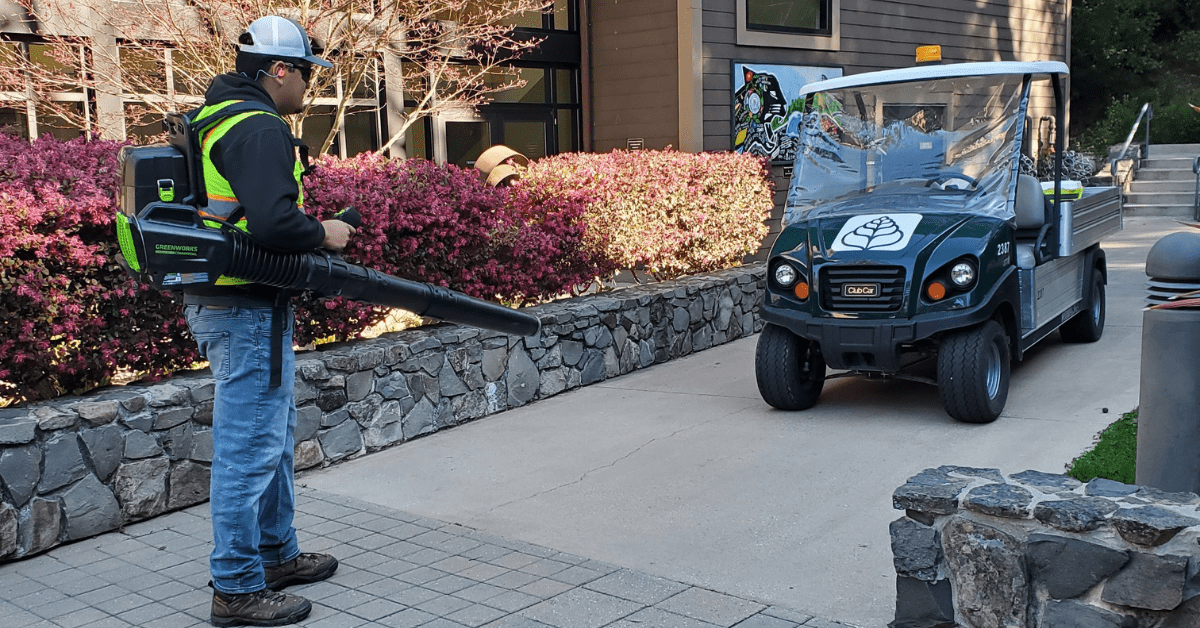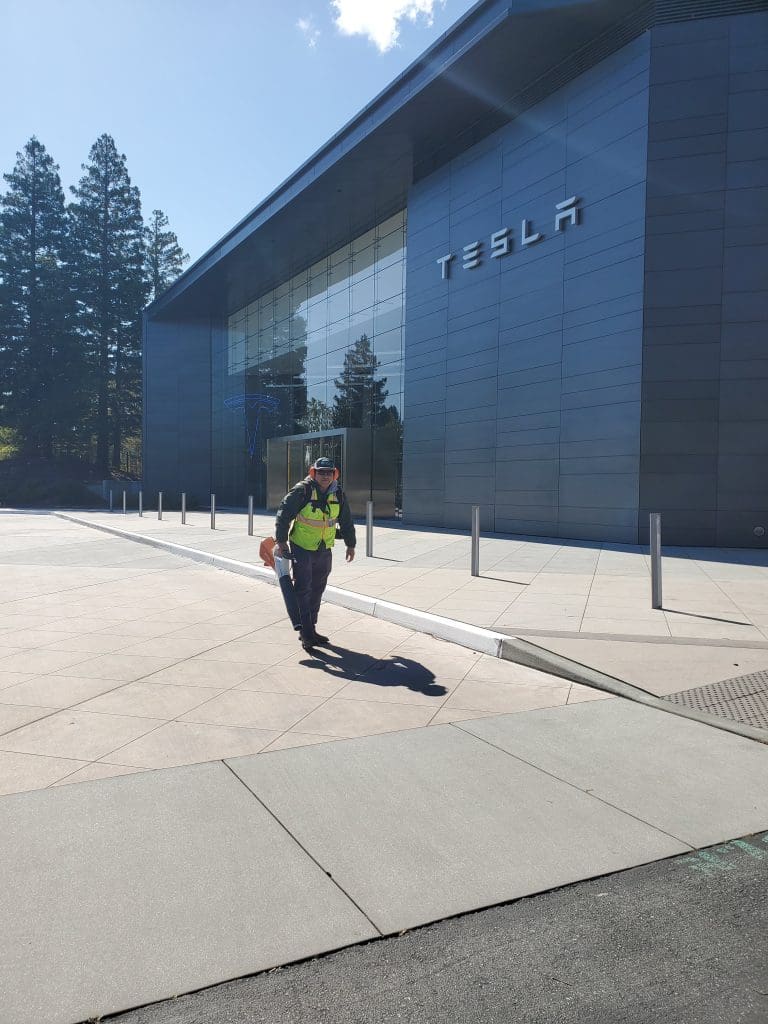
When the California Air Resource Board (CARB) proposed banning the sale of virtually all carbon-emitting landscape equipment starting in 2024, this legislation simply accelerated Cagwin & Dorward’s plans to transition to electric equipment.
The Petaluma, California-based company sees electric and robotic equipment as the future of the industry and has been planning for this shift for a long time.
“We’ve been slowly converting our smaller equipment over to electric,” says Andy Hawley, regional branch manager for Cagwin & Dorward. “Any time we have some old equipment that we need to replace, we replace it with some portion of still two-cycle and also electrical equipment. It’s been more of a phased approach to replacing older equipment.”
Hawley says their company isn’t afraid of change and progression in the industry. He says the job hasn’t changed as they still provide good service and take care of their people and their clients.

Because the law only bans the sale of new gas-powered equipment, Hawley says they are continuing to transition their fleet an appropriate rate with no set timeline. He says they don’t feel like the infrastructure or the equipment is there yet to make an overnight change.
“We’re starting to see that it has the same capacity, but it doesn’t have the run time,” Hawley says. “The components are really expensive, so it’s difficult for it to make financial sense to just convert the whole fleet. It would probably take hundreds of thousands of dollars to do that for our company, and that presents its own restrictions.”
The main challenges they’ve faced with the transition have been finding solutions for charging and determining how many batteries to have on hand for crews. Hawley says they have huge banks of charging stations they use throughout the night, which puts a strain on their electricity usage. They have also encountered space and financial limitations on how many extra batteries to have.
“We have to purchase multiple batteries so that we have them throughout the day to be able to change them out, so the charging of the batteries is a challenge as well,” Hawley says.
Depending on what the crew is doing and what season it is, they’ll typically carry an additional two to four batteries. Hawley says they’ve used STIHL battery products the most as he’s found their battery backpack blower’s blowing force and battery run times were competitive with gas. He’s seen more brands’ products becoming competitive with gas so they’ve started trial other manufacturers like Greenworks.
Another hurdle is how individual municipalities determine whether or not landscape companies can continue to operate their gas-powered equipment. Each city and municipality have slightly different regulations and restrictions when it comes to gas equipment. Hawley says gas backpack blowers have been targeted the most as it tends to be louder than most other handheld equipment.
Because the law targets all small off-road engines, the company is also researching both propane and electric mower models. Hawley says they’ve had trouble in the past with batteries lasting long enough for both electric mowers and electric blowers.
“It is still something obviously from our point of view, the conserving of resources, that we do want to eventually make that change,” Hawley says. “We’re just now getting where backpack blowers, but also electric mowers are getting to the point where they are commercially viable.”
He says the main benefit they’ve experienced since transitioning is reducing emissions and customers being happy they’re working with a company that utilizes electric equipment.
“I feel like we’re stewards of Mother Earth and it’s our job, our role to be responsible to the planet and so there are certainly heavy emission reductions with the electric equipment,” Hawley says.
Hawley says it’s a delicate balance transitioning but they’re happy with the direction they’re headed without having a hard deadline. He believes the whole industry is headed in that direction.
“As stewards of the land, I would say it’s the right direction to go,” Hawley says. “Whether or not you’re required to go that direction, I would certainly look at it and consider it. I would use it as a sales tool with your clients to show you’re looking ahead and you’re conservation-minded.”
He suggests phasing in electric equipment as it makes financial sense for your company.
“I think that ultimately the industry is going more and more towards technology,” Hawley says. “Whether it’s water-efficient controllers or electric robotic equipment. I think it’s all going to go that direction, so I would say, even just for the future of your company, you should at least consider it.”

